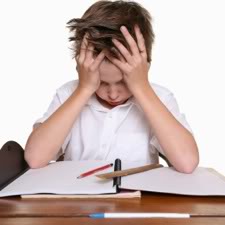ADHD
Attention Deficit Hyperactivity Disorder (ADHD)

This disorder begins in childhood but can be diagnosed in adults as it has been found to continue into adulthood. Many adults learn that they have ADHD when one of their children is diagnosed. If this disorder is not recognized and treated, individuals can have problems in their home, school, work, or with their relationships.
Signs And Symptoms
Often makes careless mistakes in schoolwork or at work
Often has difficulty paying attention or following instructions
Often does not seem to listen
Often has difficulty staying organized and on task; therefore, does not complete tasks, chores, or homework
Often avoids tasks that required sustained attention, such as homework
Often loses things, such as school assignments, supplies, or tools
Often is distracted by noises and is forgetful
Often has problems sitting still without moving hands or feet
Often leaves seat in classroom or other situations where they are expected to remain seated
Often runs around and climbs on things, or feelings of restlessness
Often has trouble playing quietly
Often is described as “on the go”
Often talks too much or blurts out answers
Often has problems waiting their turn
Often interrupts others in conversations
Causes
The cause of ADHD is not clear, but studies point to genetic and/or nervous system factors as the greatest contributor as it tends to run in families. Ongoing research is being done to identify genes that make a person more susceptible to the disorder.
Screening and Diagnosis
A checklist of signs and symptoms are often given to teachers, parents, or other care givers to screen individuals or to indicate need for further evaluation and diagnosis by a qualified mental health professional such as a therapist, psychiatrist, family physician, nurse practitioner, or physician’s assistant. People with ADHD may also have other problems such as depression, anxiety, relationship problems, learning problems, alcohol or drug abuse, which need to be addressed during their evaluation and treatment.
Treatment
ADHD is treated with medications and behavioral therapy. Medication works differently in every child or adult; therefore, ongoing medication management by a primary physician, psychoatrist, nurse practitioner or a physician’s assistant is necessary. Children and adults benefit from counseling to learn ways to live with ADHD.
Coping Skills
Family therapy works well to teach coping skills to learn ways to make accommodations for individuals in order to live with the disorder, as well as, to support all family members. A child with ADHD benefits from collaboration between teachers, the student, and his/her family to develop accommodations the child may need to be successful in the classroom.
